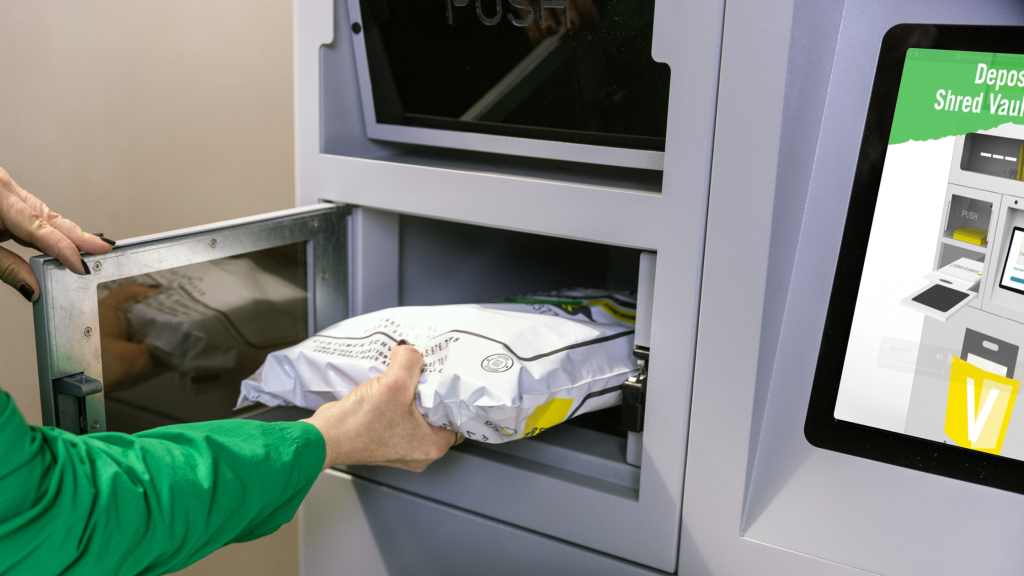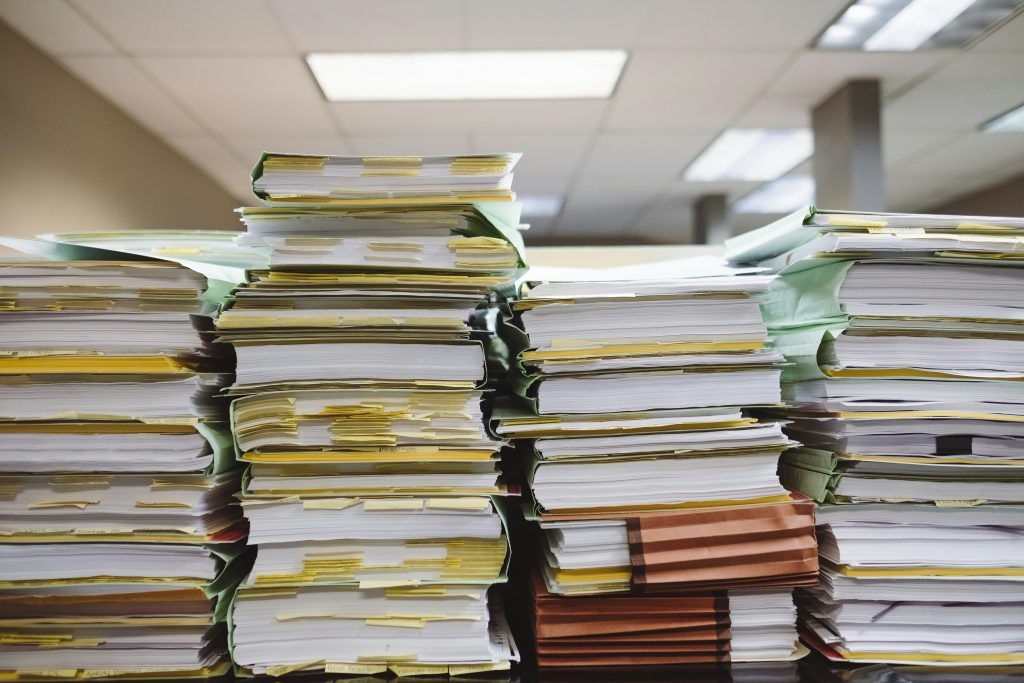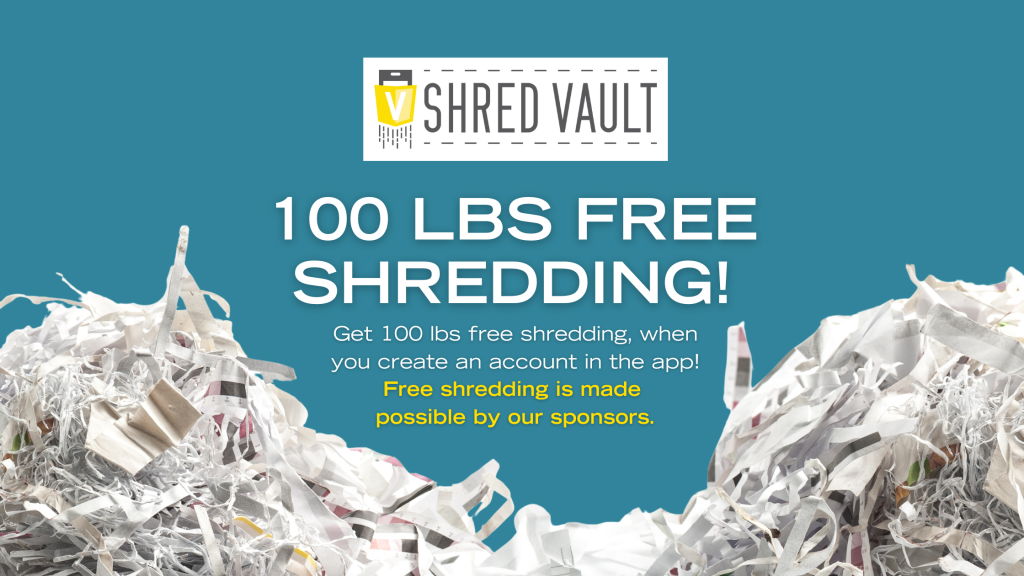One way or another, by now, most people have either filed their state and federal taxes, or they soon will. Either way, once it’s done, it’s normal to feel a well-earned sense of relief. That’s a good thing.
But there’s one last step you should take that might make you feel even better: securely disposing of unneeded personal records.
Here’s why it’s important:
- Destroying unneeded personal records reduces the likelihood of ID theft. Personal documents typically have sensitive information like your SSN, bank account information, etc. Keeping unnecessary personal records increases the likelihood that they will not be properly stored. This, in turn, increases the risk that they will be stolen, susceptible to loss during natural disasters or when you move, and also increases the chances they will be simply tossed out with the garbage.
- Destroying unneeded personal records minimizes clutter and frustration. Clutter makes it hard to find vital documents. Securely getting rid of unneeded personal records makes your living and storage spaces tidy and makes it far easier to find the records you do need.
- Peace-of-Mind: By securely destroying unneeded personal records, you are less likely to have them stolen or casually tossed in the trash, and you know that the personal records you do have are safe and protected.
There are a number of reasons personal records accumulate over the years, the most common of which is that people are unsure of how long they should be keeping them.
To help, here are some publicly available guidelines.
- Tax Returns (and receipts): The IRS recommends storing tax returns and supporting documentation for three years after filing, although some financial advisors suggest seven years for the wealthy.
- Bank Statements: Anything older than one year should be securely destroyed, unless they contain tax, home repair, or large purchase information, in which case the 3-year IRS guidance should be used.
- Pay Stubs: Once you have your W-2, these are no longer needed.
- Investment Statements: These can be securely destroyed annually after receiving and verifying your new annual statement.
- Loan Documents: Keep these until the loan is paid off. After you pay it off, you only need the final statement and letter confirming the debt is paid. The final statement can then be destroyed after seven years.
- Insurance Docs (any kind): You can destroy old policy forms after you get a new one, whether the new one is from a new insurer or the same one.
- Home/Real Estate Docs: Keep these for seven years after property ownership is transferred. This applies to purchases, renovations, and sales receipts.
- Birth/Marriage/Divorce/Death: Keep birth, marriage, divorce, and death certificates forever.
- Wills, Estate Plans, and Power of Attorney: These records are saved for as long as you live and for a little while after. Ideally, your attorney or executor will have copies of the originals. Even if they are revoked or replaced by new ones, it’s best to keep the older ones around to show what changed and validate the most recent version.
- Annual Social Security Statements: These can be destroyed annually upon receipt of a more recent statement.
- Vehicle Titles, Registrations, and Maintenance Records: These should be kept for as long as you own the vehicle. Afterward, they should be securely destroyed.
- Health Care Records: Keep for one year after payment in case of disputes. Keep records of major surgeries, treatments, and diagnoses indefinitely.
Any discussion on personal records would fall short if it did not also address the fact that many of the transactions and records are electronic, which some mistakenly believe makes paper documents unnecessary.
Many personal finance and data security professionals recommend that electronic transactions, receipts, and documents be printed and saved on paper.
Here’s why:
- Technical failures can make electronic records inaccessible, and should this happen permanently, paper documents would be the only backup.
- There’s a risk of electronic data becoming corrupted or lost due to hardware failure, software issues, or human error. Again, paper records provide valuable insurance against faulty or hacked electronic storage systems.
- And, finally, there may be legal requirements for keeping original paper documents for certain types of records.
Taking these factors into account, it is always prudent to receive or create paper copies of any important transactions and records. Of course, at some point, many of these paper documents will be replaced or obsolete and will require secure destruction.
Shred Vault can help!
If you’re looking for high security at the lowest cost, you can turn to one of our patented Shred Vault kiosks located in select regions of Nebraska, Iowa, and Colorado.
If, on the other hand, you’re looking for maximum convenience, we’re happy to send you one of our high-production, mobile shredding trucks, that will securely destroy the materials outside your front door as you watch.
Contact Shred Vault today! No matter what your question is, and no matter what your secure destruction needs are, we are more than happy to help.
___________
© 2024 Shred Vault, LLC – All rights reserved
Note: The information above is not intended to be or to replace legal or financial advice. Instead, it represents the distillation and interpretation of general information from a number of public sources, including the Internal Revenue Service, the Financial Industry Regulatory Authority, the Federal Trade Commission, the American Institute of CPAs, the Consumer Financial Protection Bureau, the National Archives and Records Administration, the Nebraska Department of Health and Human Services, and the Nebraska Hospital Association.





